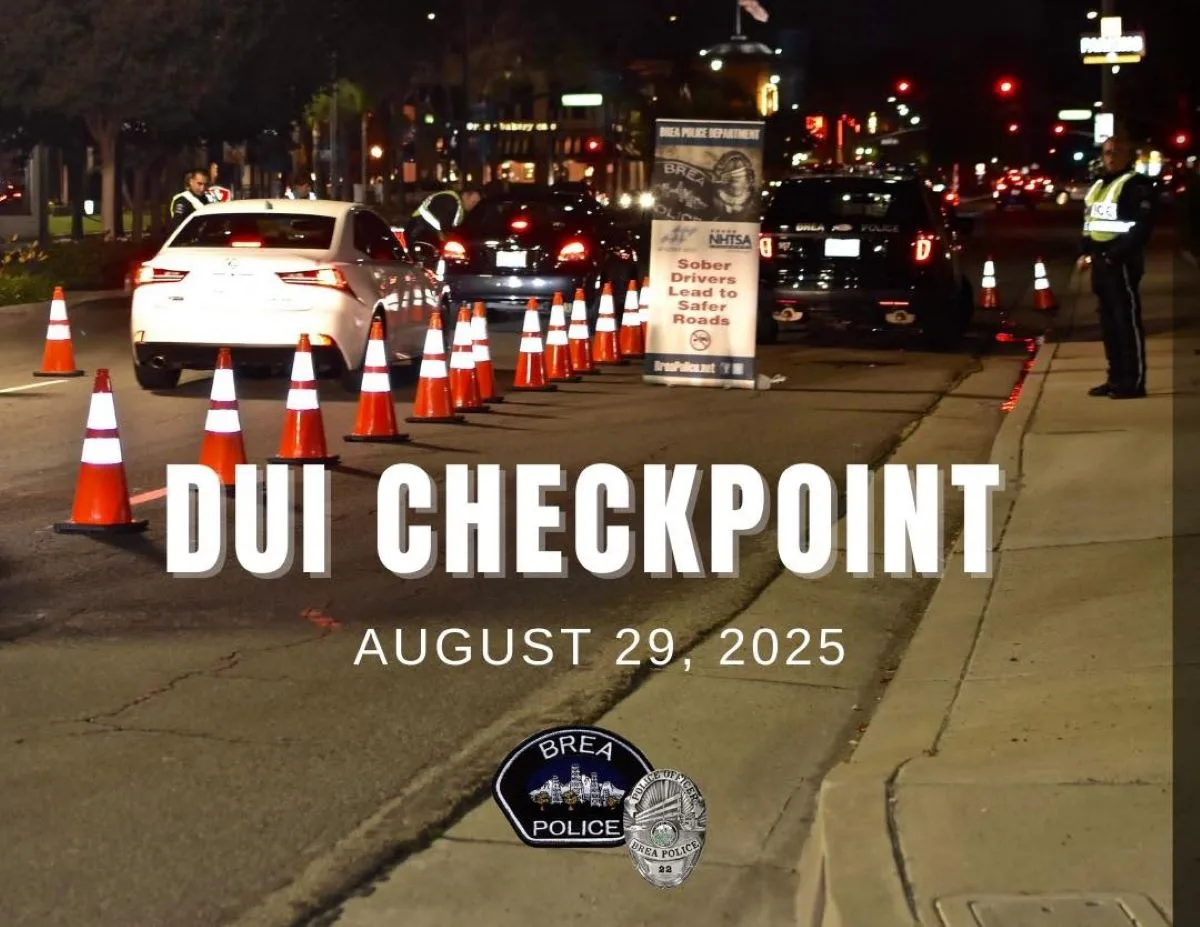The Brea Police Department will hold a DUI Checkpoint Friday, August 29, 2025, from 8:00 p.m. to 2:00 a.m., at an undisclosed location.
Checkpoint locations are selected based on a history of DUI crashes and arrests. During the checkpoint, officers will look for drivers showing signs of impairment from alcohol and/or drugs.
Impaired driving isn’t just caused by alcohol. Certain prescription and over-the-counter medications can affect your ability to drive. While medicinal and recreational marijuana are legal, driving under the influence of marijuana is illegal.
If you plan on drinking or taking medications that could impact your ability to drive safely, make a plan to stay home or arrange a sober ride.
If you’re stopped and arrested at the Brea DUI checkpoint on August 29, 2025, here’s what you could be facing in plain terms:
Legal Penalties in California (2025 DUI Laws)
For a first-time DUI offense:
- Jail time: 2 days to 6 months
- Fines: $390 to $1,000 (plus thousands more in court fees and penalties)
- License suspension: 4 months (can be reduced with an ignition interlock device)
- DUI school: 3 to 9 months
- Ignition Interlock Device (IID): Mandatory for high BAC cases (0.15%+)
For repeat offenses:
- Second DUI: 96 hours to 1 year in jail, 18–30 months of DUI school, 1-year IID
- Third DUI: 120 days to 1 year in jail, 30 months of DUI school, 2-year IID
- Fourth DUI: Possible felony charges and permanent license revocation
Aggravating factors (like having a minor in the car or causing injury) can lead to:
- Mandatory jail time (e.g., 48 hours for a first offense with a minor)
- Felony charges
- Longer license suspensions and higher fines
Impact on Auto Insurance
Getting convicted of a DUI in California can dramatically increase your car insurance rates:
- Rate hike: Up to 148% increase for a first offense
- Duration: Higher premiums typically last 3 to 5 years, but the DUI stays on your DMV record for 10 years
- Loss of discounts: You’ll lose any “good driver” discounts
- SR-22 requirement: You’ll need to file an SR-22 form to prove you have minimum liability coverage, which flags you as high-risk
- Policy changes: Insurers can’t cancel your policy mid-term, but they can raise rates or drop you when it’s time to renew

